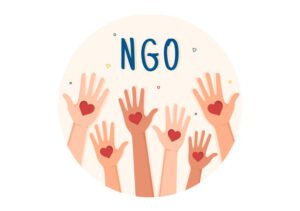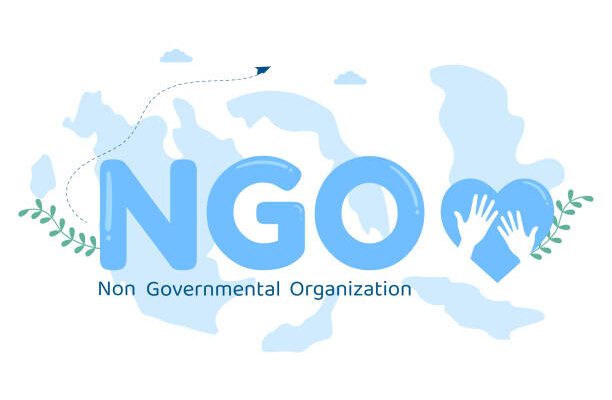Nongovernmental organizations (NGOs) were traditionally thought of as benevolent organizations whose goal was to impartially. And disinterestedly influence public policy. However, this impression has evolved. They are increasingly seen as organizations that put their own beliefs above those of the communities they represent or that act in accordance with the interests of their patrons, sponsors, and members.
Some pivotal points about NGOs are mentioned below:
 (Photo from istock)
(Photo from istock)
NGOs and Global Politics
NGOs have risen to the forefront of negotiations throughout the global association revolution. Particularly when advocating for human rights, world peace, and the environment. They have also taken the lead in providing help for development. Humanitarian relief, and disaster relief. Many NGOs have also had their own efficacy, accountability, and legitimacy called into question. Despite their reputation for challenging the legitimacy, effectiveness. And accountability of both governments and the private sector.
According to Trent of the Center on Governance at the University of Ottawa. Many NGOs are as much a part of domestic and international politics as any other interest group. And their practices and activities are not necessarily in the interest of a “good society” (Trent 2013). Their openness and accountability have come under growing scrutiny. Particularly in instances when they have misrepresented the poorest and most destitute people in order to raise money.
Funding and effectiveness of NGOs
Historically, NGOs have worked together with both state-sponsored and non-state entities. More recently, the latter have included international companies more frequently. Depending on the type of initiative, the availability of human and financial resources. And the possible benefits that can be realized, including financial gains. The degree of collaboration between the various partners has varied. Collaboration has also been heavily influenced by ideologies, goals, and self-interest.
NGOs have a wide range of effects on civil society. However, appraisals of the initiatives and programs they carry out are uncommon. Because there are typically insufficient accurate data, evaluations are typically restricted to the investigation of perceived effects at the local level. And do not frequently focus on development outcomes or outputs. At tiny geographic scales, it is exceedingly difficult to find credible information on social development indexes.
Agendas and ideologies
 (Photo from istock)
(Photo from istock)
Governments in the Organization for Economic Cooperation and Development (OECD) believe that NGOs can significantly reduce poverty. Although research suggests otherwise. And to be better at working closely with poor communities and promoting their direct participation. Because they are smaller than governments.
Such as adherence to a country’s aid policies, with priorities shifting over time and across donors. Increasing pressure from co-financing governments to show project-related poverty outcomes or by compelling them to adopt a target-driven rather than a process-driven approach may also damage aid to NGOs with a focus on poverty reduction. The Steering Committee for the Evaluation of the Netherlands Co-financing Program commissioned a research that found that partner NGOs were concerned about rising government involvement in Dutch-co financed NGO initiatives in the Andes.
Question of the common good
Compared to governments, NGOs are said to have a lower bureaucratic structure, more effective decision-making procedures, and the capacity to change course swiftly through strategic alliances. These qualities are anticipated to enable individuals to perform a variety of roles in society, including acting as alternative forms of leadership for governments and acting as catalysts, triggering agents, mobilizers, and opinion leaders (Cooper et al. 2002).
The present relevance of NGOs
 (Photo from istock)
(Photo from istock)
One is that while public participation is valuable in and of itself, it cannot improve policy making on its own. The creation of a forum where various parties can express their opinions, worries, and values and come to an agreement on how to move forward with whatever process they are involved is the end goal of any meaningful participatory process. This is true even when the parties’ opinions are divergent and in conflict. Governments and society stand to gain significantly from participatory procedures, and NGOs have the ability to transform from being impediments to governance to powerful providers of knowledge, information, and mobilization.
The promotion of a culture of assessment, not just among government and private-sector groups but also in NGOs, is a unique method, albeit a different difficulty, for efficient decision-making processes that provide results and hopefully more successful policy creation. This also holds true for non-governmental organizations. NGOs frequently lack even the accountability of their constituency, whereas the public sector is answerable to the voters and the commercial sector to the shareholders.
Final thoughts
NGOs have helped shape policy on important problems. However, significant flaws in the sector’s accountability, transparency, and capacity to address equitable issues have come to light. Due to these, the world society is becoming increasingly skeptical of their effectiveness, and the previously positive global perception of the NGO sector has changed to one that is more critical and even calls into question their legitimacy.
References:
Wiley Online Library
Thinking about why we need Political Parties, click on the link below:
Why do we need Political Parties





2 Comments on “How influential are NGOs?”